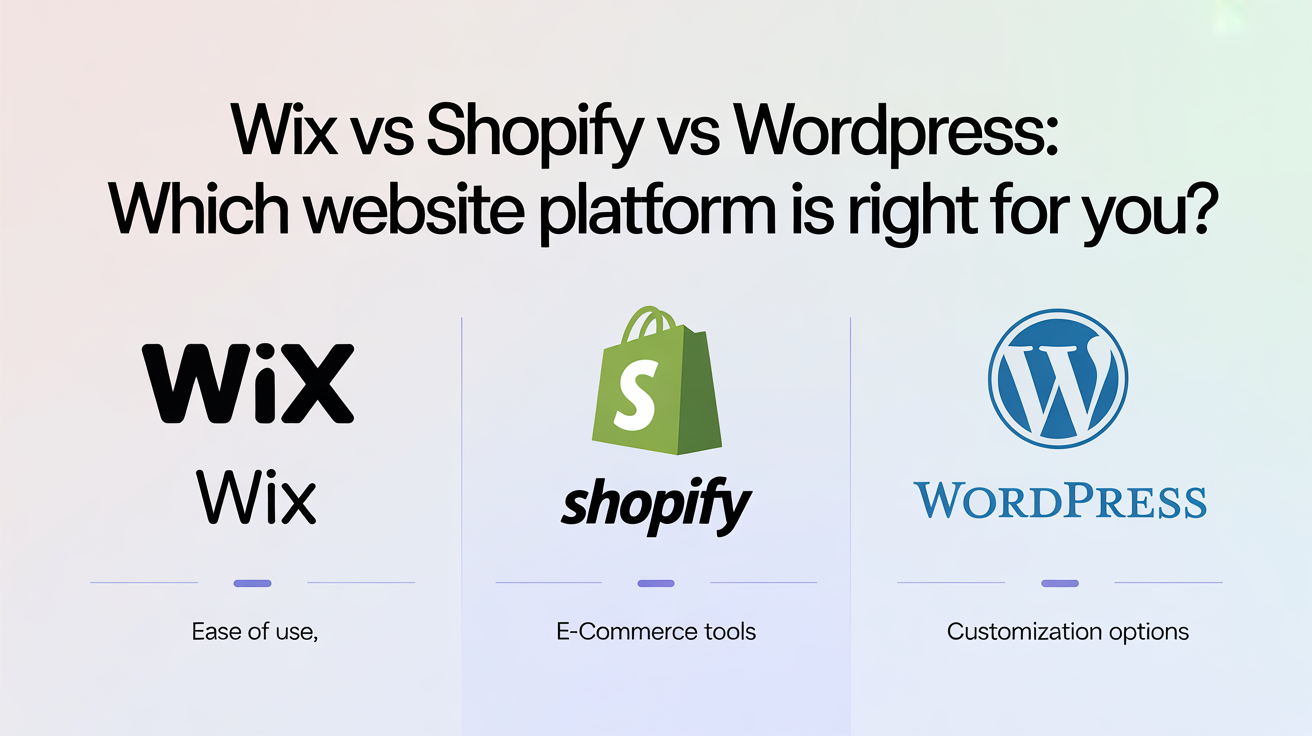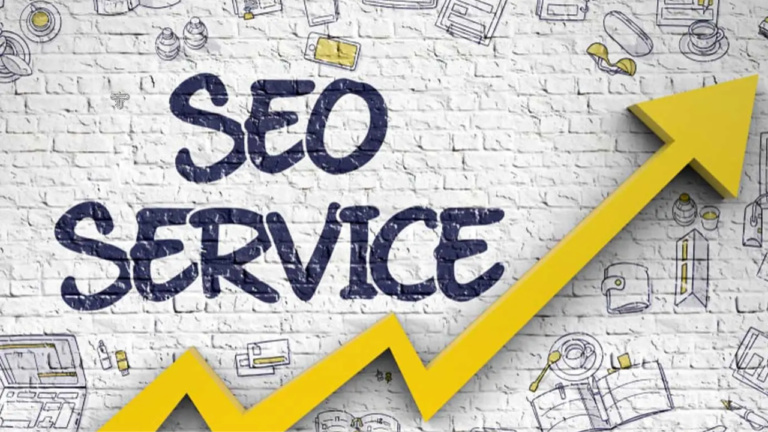Wix vs Shopify vs WordPress: Which Website Platform Is Right for You?
Choosing the right platform for your website is one of the most important decisions you’ll make for your business. Whether you’re launching an online store, building a company site, or growing a personal brand, your platform affects everything from design flexibility and ease of use to SEO performance and long-term costs.
Three of the most popular choices today are Wix, Shopify, and WordPress. Each offers powerful tools for building modern websites, but they serve different needs.
So let’s explore the key advantages and disadvantages of each to help you decide which fits your goals best.
Wix: The All-in-One Simplicity Champion
Best for: Small businesses, portfolios, or users who want a quick, easy setup with no coding.
Advantages
- Drag-and-drop simplicity: Wix’s visual editor makes building a site simple and so is perfect for beginners.
- All-in-one hosting and maintenance: You don’t have to worry about servers, updates, or plugins; everything is managed for you.
- Beautiful templates: Wix offers hundreds of high-quality, mobile-friendly designs.
- Built-in tools: Contact forms and email marketing tools are included, with no need for third-party integrations.
Disadvantages
- Limited scalability: As your business grows, Wix can feel restrictive in functionality and customization.
- Less control over SEO: While Wix has improved its SEO features, advanced users may still find it less flexible than WordPress.
- Platform lock-in: Once you build a site on Wix, it’s very difficult to export your content or move it elsewhere.
In short: Wix is perfect if you want a simple, beautiful website up and running quickly, but is not ideal for complex or highly customized projects. Here’s an example website.
Shopify: The E-Commerce Powerhouse
Best for: Businesses focused primarily on selling products online.
Advantages
- Purpose-built for online stores: Shopify was designed for e-commerce from day one. Inventory management, payments, and shipping are built right in.
- Fast, reliable hosting: Shopify sites are secure, quick to load, and automatically backed up.
- Integrated payment options: Shopify Payments streamlines checkout, and integrations with PayPal, Apple Pay, and others are seamless.
- App ecosystem: Thousands of extensions and apps can expand your store’s functionality.
- Excellent support: 24/7 customer service via chat, email, and phone.
Disadvantages
- Monthly costs add up: Shopify has a subscription fee plus transaction fees (unless you use Shopify Payments).
- Limited design freedom: Templates are clean and professional but less customizable than WordPress themes.
- Not ideal for content-heavy sites: While you can blog on Shopify, it’s not as flexible for content marketing as WordPress.
In short: Shopify is unbeatable for running an online store but if your website is content-driven or needs complex features beyond e-commerce, you may outgrow it. Here’s an example website.
WordPress: The Customisation King
Best for: Businesses and creators who want full control, flexibility, and scalability.
Advantages
- Ultimate flexibility: With thousands of themes and plugins, WordPress can power blogs, online shops, membership sites, or corporate portals.
- Full control: You own your website, files, and hosting. You can move, modify, or expand your site however you like.
- Strong SEO capabilities: WordPress is a favourite among marketers thanks to plugins like Yoast SEO and Rank Math.
- Scalable and developer-friendly: Ideal for businesses planning to grow or integrate advanced functionality.
- Open source: There’s a huge community for support, tutorials, and updates.
Disadvantages
- Steeper learning curve: Beginners may find setup and management more technical.
- Maintenance required: You’re responsible for hosting, updates, and backups unless you use a managed WordPress service.
- Security management: You’ll need to monitor for vulnerabilities and keep plugins up to date.
In short: WordPress is the best choice for flexibility and control — but it takes more effort to manage than Wix or Shopify.
So, Which Platform Should You Choose?
Whatever you choose, remember that your website is an investment and can make all the difference for your online success.
As with so many factors in business success there’s no perfect answer because everyone’s goals, budget, and comfort with technology are different.
Nevertheless, here’s our best advice:
- Choose Wix if you want an easy, all-in-one website builder for a small business, personal brand, or creative portfolio.
- Choose Shopify if your primary goal is e-commerce, and you want to sell products with minimal hassle.
- Choose WordPress if you need maximum flexibility, plan to grow your site long-term, or want to integrate advanced marketing tools.







